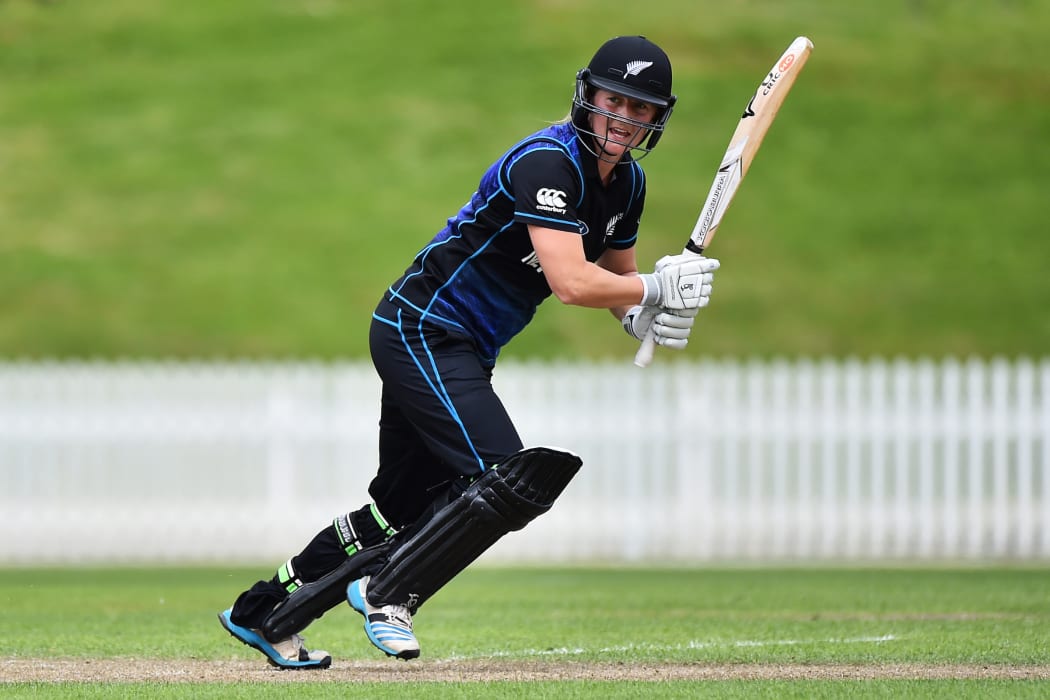Zoë George and White Fern Sophie Devine discuss menstruation and athletic performance as well as a new report that shines a light on how sportswomen are treated in this country.

Sophie Devine Photo: Photosport
Periods and Athletic Performance
We are not mini men! That’s the call from sports physician Sarah Beable.
She’s presenting a women in sport workshop at the Sports Medicine Conference in Hamilton later this month. Dr Beable has researched why it’s important female athletes have a menstrual cycle and how to optimise our performance around it.
She says there’s been a shift of mentality when addressing menstrual cycles in sport, particularly cycles. “It relates to energy available, it’s something females are under-doing a little bit."
Some athletes have chosen contraception to moderate their periods. The oral contraceptive pill has been the leading choice, but Dr Beable says the Mirena (an intrauterine device), has been “game changing” for those with painful periods, heavy flows and endometriosis.
“It’s a real viable tool for athletes."
For athletes who choose to have unmedicated cycles, she suggests a cycle tracker and suggests that having regular periods not only optimises your wellbeing and feeling of vitality, but there’s evidence to show having your period around the time you compete might actually be beneficial to performance because of the hormone surges that occur.
Changing that messaging is important. “We’ve gone from “oh no” to “hey, that’s wicked … you’re gonna go great”,” she says. “We should be embracing it instead of trying to suppress it like … mini men.”
An information pack will be released after the conference to help athletes, coaches, administrators, parents and supporters.
No Place For Women
It’s been 12 months since New Zealand Cricket printed independent research into the way women have been treated in the sport. Sarah Beaman conducted the research, which involved talking to women in the game from players and administrators to supporters and in the sports media.
What she found was for the past 25 years women had been neglected by New Zealand Cricket. It found 90 percent of cricket clubs didn’t have any female only teams and there wasn’t a strong development pathway offered by many clubs for girls.
The report also found women only filled six percent of governance roles within the sport. But according to Beaman progress has been made and New Zealand Cricket has been proactive in supporting and attracting women to the sport. The number of women in governance roles have increased from 11 to 30 in 12 months.
But the gender pay gap still remains for women, particularly players. Fair Play co-host White Fern Sophie Devine has spent the last few months playing in Australia. She’s seen the benefits of a huge pay increase handed down to the Australian women in August. $50 million has been put into the pot - the largest amount in the sport’s history - to pay female cricketers, including Kiwis who play in the Big Bash League.
She says she’s fortunate NZC gives female players the opportunity to play in the big domestic tournaments abroad, which has helped her prepare for the upcoming international season.
The White Ferns head to the UAE in the coming weeks to face Pakistan. The Ferns come off a disappointing result at the Cricket World Cup where the team were knocked out before the semi-final stage.
Coach Haidee Tiffen is sure the team has learnt from the World Cup and come into the series with a fresh focus. Fitness has been a priority for the side, which she says was something the team lacked when compared to the likes of Australia and England at the World Cup.

